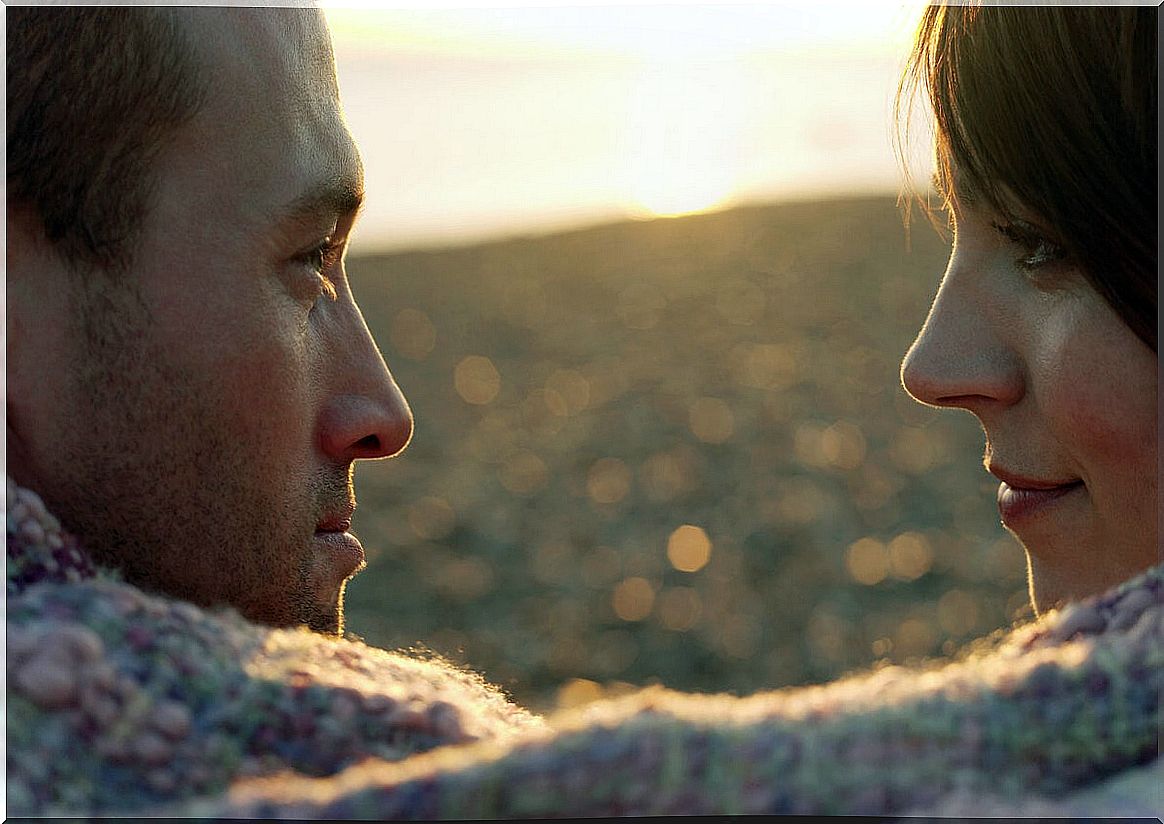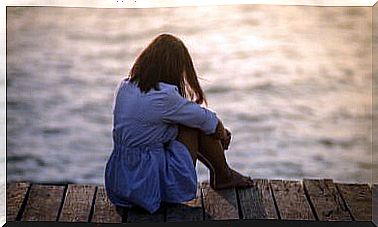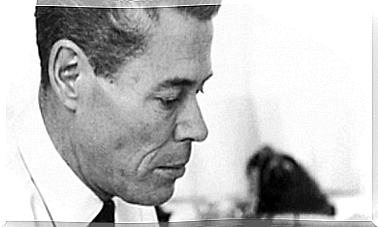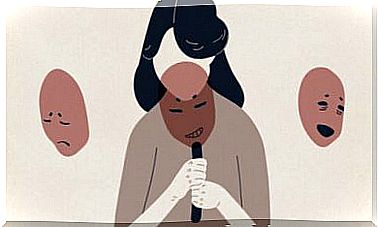5 Ways Childhood Traumas Affect The Relationship

Childhood traumas affect a couple’s relationship in multiple ways. It is not easy to bond with someone when the mind drags open wounds, insecurities and shadows of an unresolved past. Thus, one of the ways in which that emotional mark most influences when initiating a commitment with a person is in the type of attachment built.
As we well know, nothing is as multifaceted, complex and damaging as a psychological trauma. They arise as a result of a continuous exposure to a stressful event. It can be a dysfunctional home, having suffered abuse, physical or emotional abuse, etc. The truth is that there are many people who reach adulthood with that mark from yesterday.
It is common to navigate in that ocean in which distrust is combined with fear of abandonment. They can go through times when they hate themselves, being a challenge for them to stay in the relationship – keep contributing, keep caring for it, keep caring for the other. It is not easy to love someone who did not have a good childhood and “has certain consequences. “
Traumas experienced in childhood have serious effects on mental health. All this affects any area of life: work, friendships, relationships …

Ways Childhood Traumas Affect Your Relationship
In psychological trauma, the impact of what has been experienced persists even though that stressful situation no longer exists. In other words, it does not matter if 15, 20 or 30 years have passed after that adverse childhood experience. The symptomatology persists and manifests itself in many ways.
Research works, such as those carried out in collaboration with the Universities of Illinois, Chicago, Virginia and Texas, in the United States, showed something important in this regard. A good part of the children who were victims of childhood trauma reached adolescence with difficulties managing and regulating emotions. Likewise, another aspect was also discovered: they were more tolerant of distress situations.
That is, many derived in the classic learned helplessness. They found it difficult to react, act and defend themselves in the face of experiences of suffering and stress. Thus, and although it is true that each person reacts and acts in a particular way when faced with traumatic events, there are always similar patterns that tend to repeat themselves. One of these evidences is that childhood traumas affect the couple’s relationship and this is how they do it… We analyze it.
1. I need you, but I distrust you (alterations in the attachment style with the partner)
When a child suffers mistreatment, emotional deficiencies, abuse, etc., it is common for them to develop two types of attachment in adulthood: the ambivalent anxious attachment style or the disorganized attachment. How do these dynamics manifest themselves in couple relationships? Basically as follows:
- They may show (apparent) emotional self-reliance, assuming they don’t need anyone. They always try to put some distance, but at the same time, they need the closeness of the partner (hence the ambivalence).
- It is difficult for them to be intimate, to build a solid trust to open up to the other.
- They fear being betrayed, abandoned … No matter how many displays of affection the partner offers them, nothing is enough for them.
- Ambivalence is certainly a constant feature. They are the classic people who need everything from the other, they are demanding, but in turn, distrust and fear of being hurt as they were in childhood is what raises walls and barbed wire in that relationship.
2. Everything surpasses me (inability to handle common problems)
Childhood trauma affects a relationship in many ways and one of them has to do with the ability to solve problems. They are usually people who do not feel capable of handling everyday challenges in their own relationship. They oversize everything, anything affects them and they feel overwhelmed.
A bad gesture from the couple is already interpreted as boredom or lack of love. An oblivion is the end of the world and a simple discussion unequivocally shows that this relationship is breaking …
3. I don’t want to talk about it (aversion to conflict)
As we pointed out previously, childhood traumas bring with them poor management of emotions and, often, an inability to verbalize what hurts and communicate effectively. This makes them not skillful when it comes to handling specific differences. The most common is that when an argument arises they close in band and opt for silence.
4. I know that I do not deserve you (constant doubts about the love of the couple)
Those who suffered in their own skin the lack of love in childhood is common to reach adulthood with low self-esteem. This lack of self-love and appreciation for who they are, leads them to constantly doubt their own relationship. This, as we can imagine, involves a slow boycott of the relationship itself.
When the love of the other is repeatedly questioned, that bond is doomed to constant suffering.

5. Childhood traumas affect the relationship: the constant feeling of loneliness
“I am with my partner, but despite this, loneliness is a constant in me. Nothing makes me really happy, there are days when I can’t handle myself or the weight of the world… ” . Childhood traumas affect the relationship in many ways, but there is one axis that moves everything: the latent suffering, the unhealed wound.
Research work, such as those conducted at the Universities of Vermont and Virginia, reminds us that childhood traumas orchestrate psychological disorders and, in many cases, are not even treated. Post-traumatic stress, generalized anxiety, and major depression are common in victims of abuse or abuse in childhood.
Encapsulated pain, the mark of that unresolved trauma, tends to isolate the person. Hence the feeling of permanent loneliness, despite having someone who loves them unconditionally by their side. In this type of relationship there are not two figures, but three. The partner itself and that latent suffering . Let us therefore not hesitate to request professional help in these situations …









